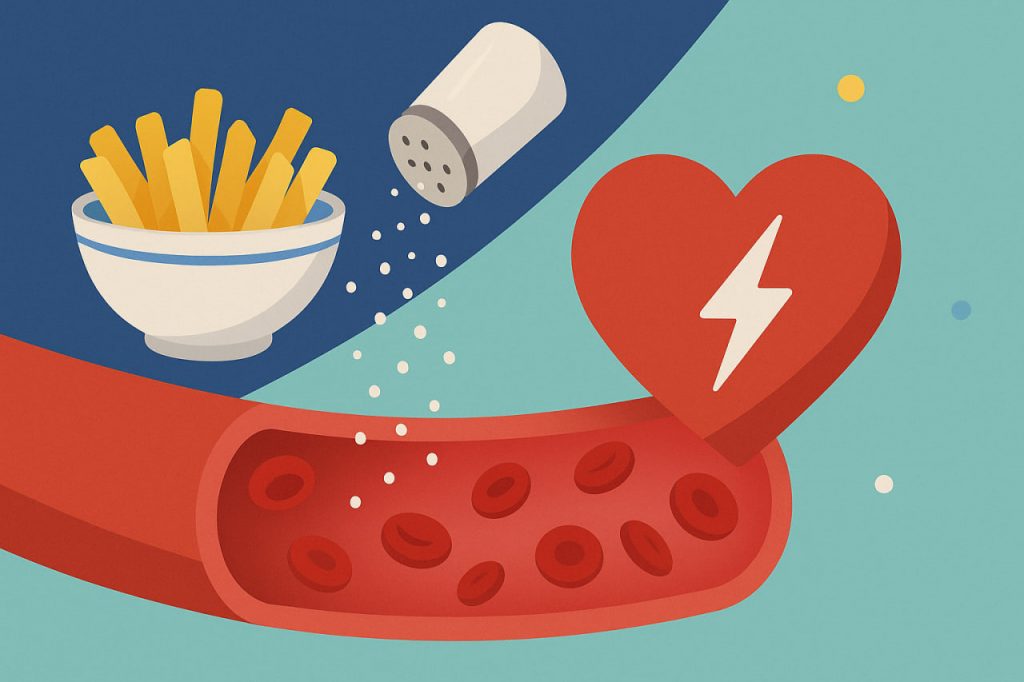Excessive salt (sodium chloride) intake is a common dietary issue worldwide and is closely linked to cardiovascular health. While sodium is essential for normal body functions, too much of it can negatively affect the blood vessels and increase the risk of serious diseases.
How Salt Affects the Vascular System
When you consume excess salt, sodium levels in the blood rise. This causes the body to retain water to dilute the sodium, increasing blood volume. The greater volume puts extra strain on blood vessel walls, raising blood pressure. Over time, this can damage the endothelium (the inner lining of blood vessels), making them less flexible and more prone to narrowing.
Potential Health Consequences
- Hypertension (High Blood Pressure)
Chronic high salt intake is one of the leading causes of hypertension, a major risk factor for stroke and heart attack. - Atherosclerosis
Damage to the vessel walls can lead to the buildup of plaque, reducing blood flow and oxygen delivery to tissues. - Stroke and Heart Disease
Stiff, narrowed vessels increase the risk of blood clots and cardiovascular events. - Kidney Strain
High salt levels can overwork the kidneys, further impacting blood pressure regulation. - Microvascular Damage
Small blood vessels in the brain, eyes, and other organs may be particularly vulnerable.
How to Reduce Salt Intake
- Limit processed foods – They are often the largest source of hidden sodium.
- Cook at home – Control the amount of salt added to meals.
- Use herbs and spices – Flavor food without relying on salt.
- Check nutrition labels – Aim for less than 5 g of salt (2 g sodium) per day, as recommended by WHO.
The Bottom Line
Salt is necessary for nerve function, muscle contraction, and fluid balance, but balance is key. Moderation in salt consumption helps maintain healthy blood vessels, reduces the risk of cardiovascular disease, and supports overall well-being.
Glossary
- Sodium – A mineral that regulates fluid balance and blood pressure.
- Endothelium – The thin inner lining of blood vessels.
- Hypertension – Chronically high blood pressure.
- Atherosclerosis – Hardening and narrowing of arteries due to plaque buildup.
- Microvascular damage – Injury to the smallest blood vessels in the body.


